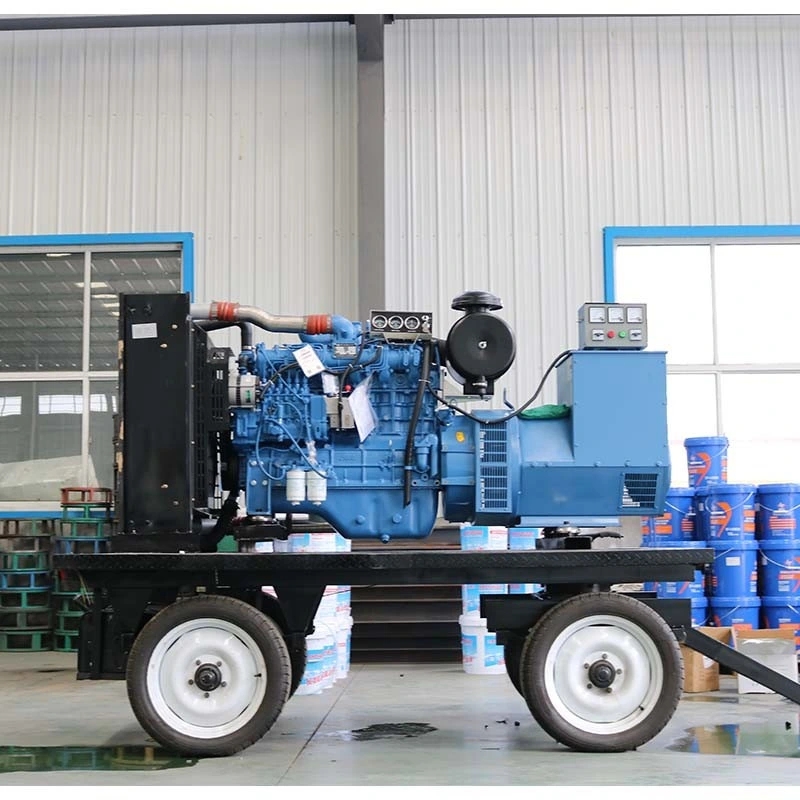Introduction
Diesel generators are versatile and reliable power sources commonly used in various applications ranging from backup power supply to prime power generation. One important aspect of diesel generators is their ability to operate at variable speeds, allowing for greater flexibility in meeting varying power demands. In this article, we will explore the concept of variable speed operation in diesel generators, its benefits, challenges, and best practices for optimizing efficiency and performance.
Understanding Variable Speed Operation in Diesel Generators
Traditionally, diesel generators have been designed to operate at a fixed speed to generate electricity at a standard frequency, typically 50 Hz or 60 Hz depending on the region. However, with advancements in technology and the growing demand for more efficient and environmentally friendly power generation solutions, variable speed operation has emerged as a viable option for diesel generators.
Variable speed operation in diesel generators involves adjusting the engine speed to match the required electrical load, leading to improved fuel efficiency and reduced emissions. By running the engine at variable speeds, the generator can operate closer to its peak efficiency point, resulting in lower fuel consumption and reduced operating costs.
Benefits of Variable Speed Operation
1. Improved https://www.lkpowerplant.com/product/special-offer-reliable-high-power-200kw-efficient-diesel-generator-set-for-industrial-use/ : One of the key benefits of variable speed operation in diesel generators is improved fuel efficiency. By adjusting the engine speed to match the electrical load, the generator can operate more efficiently, leading to fuel savings and reduced operating costs.
2. Reduced Emissions: Operating a diesel generator at variable speeds can help reduce emissions by allowing the engine to run at its optimal efficiency point. Lower fuel consumption results in lower emissions of greenhouse gases and pollutants, contributing to a cleaner environment.
3. Enhanced Performance: Variable speed operation enables diesel generators to respond quickly to changes in load demand, providing better stability and reliability in power generation. This flexibility is particularly useful in applications where the load varies frequently or unpredictably.
Challenges of Variable Speed Operation
While variable speed operation offers numerous benefits, it also presents some challenges that need to be addressed to ensure optimal performance and reliability of diesel generators.
1. Engine Design: Not all diesel engines are designed to operate at variable speeds. Retrofitting existing generators for variable speed operation can be complex and costly, requiring modifications to the engine control system and other components.
2. Control System Complexity: Variable speed operation requires sophisticated control systems to monitor and adjust engine speed based on load demand. Ensuring the proper integration of control systems with the generator set is essential for reliable operation.

3. Maintenance and Service: Operating a diesel generator at variable speeds may impact the maintenance requirements and service intervals. Regular monitoring and maintenance of the engine and control systems are necessary to prevent issues and ensure optimal performance.
Best Practices for Optimizing Efficiency and Performance
To maximize the benefits of variable speed operation in diesel generators, it is essential to follow best practices that enhance efficiency and performance. Here are some key considerations:
1. Engine Selection: When choosing a diesel generator for variable speed operation, consider engines specifically designed for this purpose. Look for engines with variable speed governors and electronic control systems that can efficiently adjust engine speed based on load demand.
2. Load Management: Proper load management is crucial for optimizing efficiency and performance in variable speed operation. Implement load shedding strategies and prioritize critical loads to ensure the generator operates at its most efficient capacity.
3. Regular Maintenance: Maintain a proactive maintenance schedule to keep the generator in optimal condition for variable speed operation. Monitor engine performance, fluid levels, and control system parameters regularly to identify any issues early and prevent downtime.
4. Training and Monitoring: Provide training for operators and maintenance personnel on the specific requirements of variable speed operation. Implement remote monitoring systems to track generator performance and diagnose potential issues in real-time.
Conclusion
Variable speed operation in diesel generators offers a range of benefits, including improved fuel efficiency, reduced emissions, and enhanced performance. By understanding the concept of variable speed operation, addressing challenges, and following best practices for optimization, operators can maximize the efficiency and reliability of diesel generators in various applications. As technology continues to evolve, variable speed operation is expected to play a key role in shaping the future of power generation with diesel generators.
